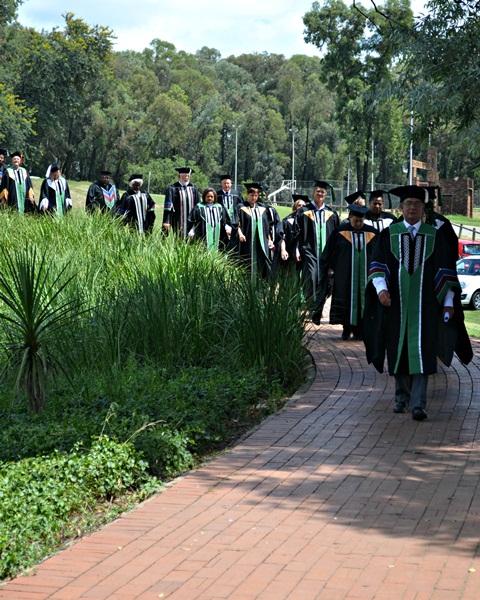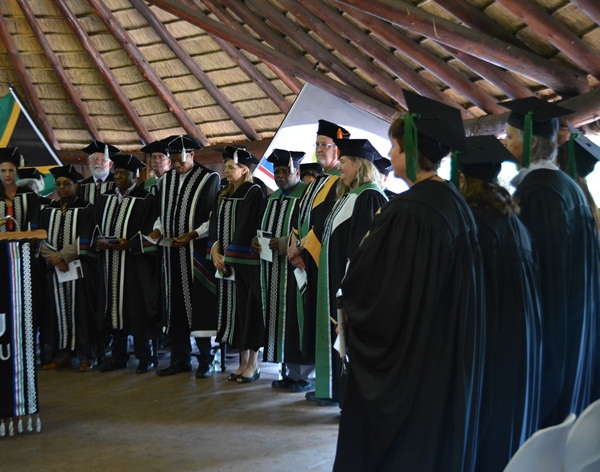This is the message from Prof Dan Kgwadi, Vice-Chancellor of the North-West University, during the Official Academic Opening of the Vanderbijlpark Campus. “This is an exciting time for us as a university,” says Prof Kgwadi and adds that stability and quality remains the keystones during this time of fundamental change.
Professor Kgwadi explains: “We are no longer a university which functions in silos. We are one university with a structure that reflects our unity. During 2017 we must start to embrace our unity in various ways since we win and lose together.”
A shared dream
During his address Prof Kgwadi reiterated the university’s dream to become a South African university in all respects, reflecting the best values embedded in the constitution. Having said this, the purpose of the North-West University remains clear: “To excel in innovative learning and teaching and cutting-edge research, thereby benefitting society through knowledge”.
This dream and purpose will be fulfilled by dynamically adapting to changes and new challenges and by pro-active initiatives, says Prof Kgwadi and adds that the global higher education environment is changing rapidly and significant technological changes will continue to have a profound effect on the university in future. “We have to recognize that we are not merely competing with other South African universities, but also with various international institutions. These demands ask of us to leave our comfort zones.”
The practice of social justice
It is important for all members of the university community to not lose sight of the ideal of promoting social justice, says Prof Kgwadi. In unpacking this concept, four main practices come to mind:
- Accessibility
- Financial support
- Academic excellence
- Inclusive (in the sense that we embrace diversity)
“One of the biggest challenges facing our sector is curriculum transformation,” says Prof Kgwadi and says that from a social justice perspective it brings forward vital questions about the way in which dominant knowledge traditions have been formed, whose interests they continue to serve, and the traditions that may have been marginalized or pushed to the side. “It demands as well that we reflect critically on how our curricula accommodate and respect the diversity of our students, and take diversity on board as an asset rather than a hindrance.”


